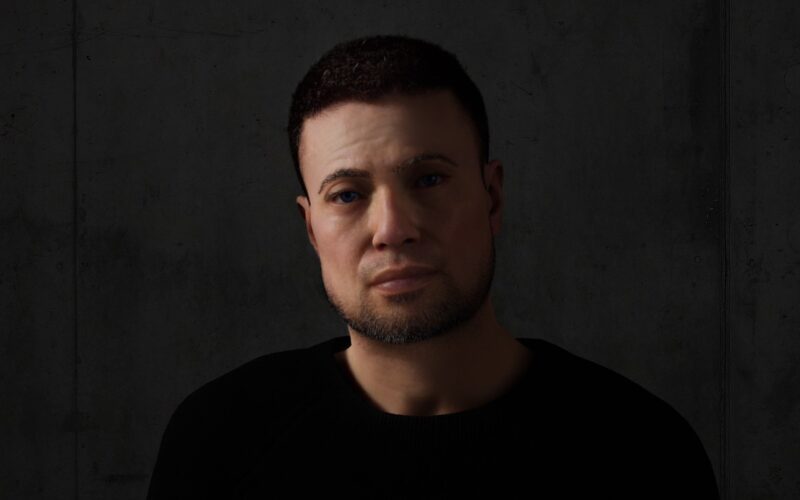Betrayal in a relationship can have devastating consequences on both the victim and the relationship itself.
The pain and anguish experienced by the victim can be overwhelming, causing long term psychological damage. Trust, which is the foundation of any relationship, is shattered, leading to feelings of isolation, vulnerability, and despair.
Recovering from betrayal can be a long and painful process, requiring time, effort, and patience. Depending on the individual, healing can involve seeking professional help, rebuilding trust within the relationship, or ultimately moving on.
While it may never be possible to completely forget the betrayal, with the right support and effort, it is possible for victims to move forward and rebuild their lives.
The initial shock of discovery
Betrayal is a devastating experience that can leave one feeling lost, confused, and hurt.
The initial shock of discovering that someone you trusted has violated that trust can be overwhelming. It can be difficult to process the information and make sense of what has happened. The range of emotions you experience during this time can be intense, from anger and sadness to disbelief and confusion.
Betrayal raises important questions about the nature of trust, relationships, and human behaviour. It's important to give yourself time to process and come to terms with what has happened, and to seek support from loved ones or a professional if needed.
While the initial shock of betrayal can be difficult to bear, it's important to remember that healing and growth are possible.
Questioning your own judgment and self-worth
Experiencing betrayal can leave individuals feeling a range of negative emotions, including questioning their own judgment and self-worth. When someone breaks our trust, it can shatter the foundations of our worldview and leave us feeling lost and vulnerable.
This can lead to self-doubt, low self-esteem, and a lack of confidence in our ability to make good decisions. It's important to remember that these feelings are normal and understandable, and that it's possible to regain your sense of self-worth and trust in yourself over time. Seeking support from loved ones, professional therapy, and practicing self-care can all be effective ways to work through these emotions and find healing.
Remember, your worth as a person is not determined by the actions of others, and you have the power to rebuild your sense of trust and confidence in yourself.
Overwhelming feelings of grief, sadness and loss
When someone you trusted and cared for betrays you, it can leave you feeling completely devastated.
The intense emotions of grief, sadness, and loss can be overwhelming and it may feel like it will never end. Betrayal can range from infidelity to broken promises and can leave a deep wound in your heart.
It may take time to process and heal from what has happened, but it's important to remember that you are not alone. Seeking support from friends, family, or even a professional therapist can be incredibly helpful during this time.
With time, patience, and self-care, it is possible to move forward and heal from the pain that betrayal has caused.
Trust issues that can undermine future relationships
Trust is the foundation of any strong relationship. When betrayal occurs, it can create deep wounds that take time to heal, and even when it seems like the relationship is moving forward, the effects of that betrayal can linger.
Trust issues can manifest in different ways, from jealousy to an inability to communicate openly and honestly. These issues can erode the bond between partners, making it difficult to move forward and establish a healthy and happy relationship.
While rebuilding trust takes time, it's important to acknowledge the causes of betrayal and work together with your partner to create a solid foundation for the future.
By taking steps towards greater transparency, honesty, and mutual respect, you can overcome trust issues and cultivate a strong and meaningful relationship.
Setbacks on the road to healing
Healing after betrayal can be a lengthy and difficult process, often riddled with setbacks and obstacles.
It is important to acknowledge that healing is not a linear journey, but rather a process that involves ups and downs. Setbacks can take many forms, including triggers that remind you of the betrayal, persistent feelings of anger or sadness, or difficulty trusting others.
It is important to remember that these setbacks are normal and to be expected. You may be making progress one day, only to find yourself experiencing intense emotions the next. However, it is important to remember that healing is possible, even in the face of setbacks.
With time, self-care, and support, it is possible to continue on the road to healing and find peace and closure.
Seeking support from a compassionate friend or mental health professional
Experiencing betrayal can be a challenging and painful experience.
Whether it's from a close friend or a significant other, the aftermath can leave you feeling lost, confused, and alone. In times like these, it's essential to seek support from someone who understands your feelings and can offer compassionate guidance.
A compassionate friend can provide a listening ear, empathy, and a safe space to share your thoughts and emotions. Alternatively, a mental health professional can offer professional guidance, tools, and coping strategies to help you recover from the trauma of betrayal.
Seeking support from either of these individuals can provide the necessary emotional support and help you move forward towards healing.
Allowing yourself time to heal through self-care
When someone you care about betrays you, it can leave you feeling shaken and unsure of what to do next. It's important to take the time to heal and process your emotions.
Self-care is one method you can use to help yourself through this difficult time. Whether that means taking a bubble bath, practicing meditation or indulging in a good book, self-care can help you feel more relaxed and centred.
Keeping a journal is another way to cope with betrayal. Writing down your thoughts and feelings can help you process them and gain clarity. Lastly, spending time in nature can be incredibly healing. Going for a walk, practicing nature photography or simply sitting outside and taking in the beauty around you can give you a sense of peace and tranquillity amidst the chaos.
Remember, no matter how long it takes, you deserve the time to heal and move forward from this experience.
Understanding that how your partner behaved says more about them than you
Betrayal can be a tough pill to swallow, but it is crucial to understand that it says more about those who betray than those who are betrayed.
It is easy to get caught up in a cycle of self-doubt, questioning if there was something that could have been done differently to prevent the betrayal. However, it is important to acknowledge that one's partner's behaviour is a reflection of their own thoughts, feelings and insecurities. Rather than blaming oneself, it is essential to take care of one's own feelings and emotions and communicate with their partner.
Ultimately, it is up to the betrayer to take responsibility for their actions and make amends. Remember, you are not the problem - your partner's behaviour is.
Forgiving yourself for any role you played
One of the hardest things to do after experiencing betrayal is forgiving ourselves for any role we may have played in the situation.
While it's important to take responsibility for our actions, it's equally important to learn to forgive ourselves and move forward. However, it's crucial to remember that forgiving ourselves doesn't mean condoning the other person's actions.
We can acknowledge our own mistakes and still hold the other person accountable for their betrayal. It's about finding a balance between self-forgiveness and recognising what the other person did wrong.
Ultimately, forgiving ourselves is a powerful act of self-love and a step towards healing and growth.
With help, regaining perspective and learning relationship red flags
After being betrayed by someone we trusted and cared for deeply, it can be difficult to regain perspective and move forward. Seeking the help of a therapist or trusted friend can be an important step in finding closure and learning from the experience.
Understanding relationship red flags for the future can also be crucial in avoiding similar situations in the future. Red flags can include things like a pattern of lying or being secretive, being overly controlling, or being emotionally unavailable. By identifying and paying attention to these warning signs, we can protect ourselves and establish healthier relationships in the future.
It's important to remember that healing is a process and seeking support is a brave and necessary step in moving forward with strength and resilience.
Emerging stronger, wiser and ready to rebuild foundations of trust
Betrayal can be a profound shock to our system, shaking our beliefs and putting strains on our relationships.
However, if we choose to emerge from these experiences stronger and wiser, they can help us develop resilience and trust in ourselves. Rebuilding our foundation of trust after betrayal is not a simple process, but it is essential to our healing and growth. Through self-reflection, seeking support from loved ones, and finding ways to let go of resentment, we can work towards a future that is built on honesty, respect and integrity.
While it may not be easy, the outcome of emerging wiser and stronger from these difficult situations can provide us with the tools to weather any adversity that comes our way.




















